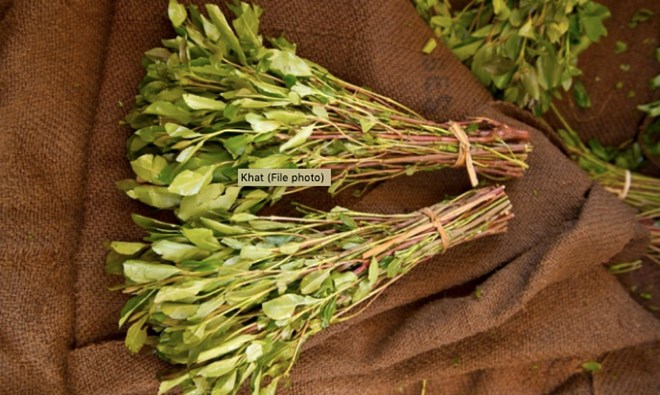
Thursday March 10, 2022

Two women have been remanded in custody on charges of importing khat, a prohibited stimulant, by mail.
In separate arraignments before magistrate Nadine Lia this afternoon, Ayan Awil Mohamed, 26, and Hodon Aden Farah, 42, both from Somalia were charged with importing, selling and possession of khat.
Drugs squad Inspector Mark Anthony Mercieca told the court how the women had been arrested after police were alerted to the suspicious package by customs.
The mail item had been addressed to a property in Pieta and was found to contain a green grass-like substance, which they suspected to be a prohibited drug. The substance was analysed and found to be khat, a stimulant which is popular in Somalia.
The court was told how police had executed a search and arrest warrant on Ayan at her address in Pieta, which turned out to be empty and unoccupied. “It was completely empty,” said the inspector.
The inspector had then called up a number which was printed on the package containing the illegal substance. A female voice had answered and after being told that she was talking to the police, had replied “I’ll be there in five minutes.”
Awil Mohammed Ayan had subsequently turned up and was arrested together with two others.
Lawyer Franco Debono, defending both accused women together with lawyer Francesca Zarb, told the court that they were pleading not guilty and requested bail.
The prosecution objected, citing the seriousness of the charges, the accused’s lack of ties to the island and the absence of a fixed address. During investigations the Pieta address provided was found to be empty, said the inspector. The younger accused resided with her aunt, the other accused, as she lacked the financial means to pay rent, the court was told.
In his submissions on bail, Debono argued that khat was a recent introduction to Maltese law and was treated differently to other kinds of drugs when it came to punishment.
When the court pointed out that the accused women would effectively be residing together on bail, Debono argued that they could not testify against each other as they were not considered competent witnesses at law.
The defence submitted that the women had also cooperated with the police, something which the prosecuting inspector confirmed, adding that they had indicated third parties involved in the crime to the police. In fact, Awil’s statement had led to the arrest and prosecution of a third party in separate proceedings, he said. The woman’s part in the drug importation operation had been allowing her address and name to be used in order to receive the package, said the inspector.
Debono stressed that both women had cooperated with the police and were prepared to abide by any bail conditions imposed by the court. An inquiry had already preserved all the evidence, pointed out the lawyer.
In his objections to bail, the prosecuting officer explained that the case involved “8 to 9 kg” of khat and constituted a serious offence. Furthermore, the accused had no fixed address or ties to the island and was living with her aunt, who was also a defendant in separate proceedings on the same facts. He confirmed that an inquiry was ongoing and that the defendant had cooperated with the investigation by explaining her role and divulging information which had led to further arrests, investigations and proceedings.
Farah, who told the court that she was a housewife, was arraigned next on related charges. Defence lawyers Franco Debono and Francesca Zarb entered a not guilty plea and requested bail, telling the court that Farah was married and had three children.
But Inspector Mercieca countered, telling the magistrate that she was “more involved” in the plot than the other defendant.
“What is different from the other case, is that she ordered the drugs in another person’s name and sold it to third parties. She planned the operation, made all the arrangements and had imported other similar packages before this one and had sold it to the Somali community in Malta. This emerged from the woman’s statement to the police,’ he explained.
Debono submitted that the woman had a valid address and was married to a man who worked with a local courier company. She had been called up by the police and had gone to the police station voluntarily to answer questions. “She cooperated fully and is presumed innocent. In these circumstances, usually bail is granted,” Debono submitted.
The lawyer argued that her being the mastermind of the operation had in fact, emerged from her own statement to the police and that in any case this was a consideration on the subject of punishment, but not bail.
Bail was denied in both cases, however, after the court took into account the nature of the charges, the relationship between the co-defendants, the fact that the proposed place of residence was the same, as well as the fact that the accused did not appear to have independent financial means, together with the risk of absconding.